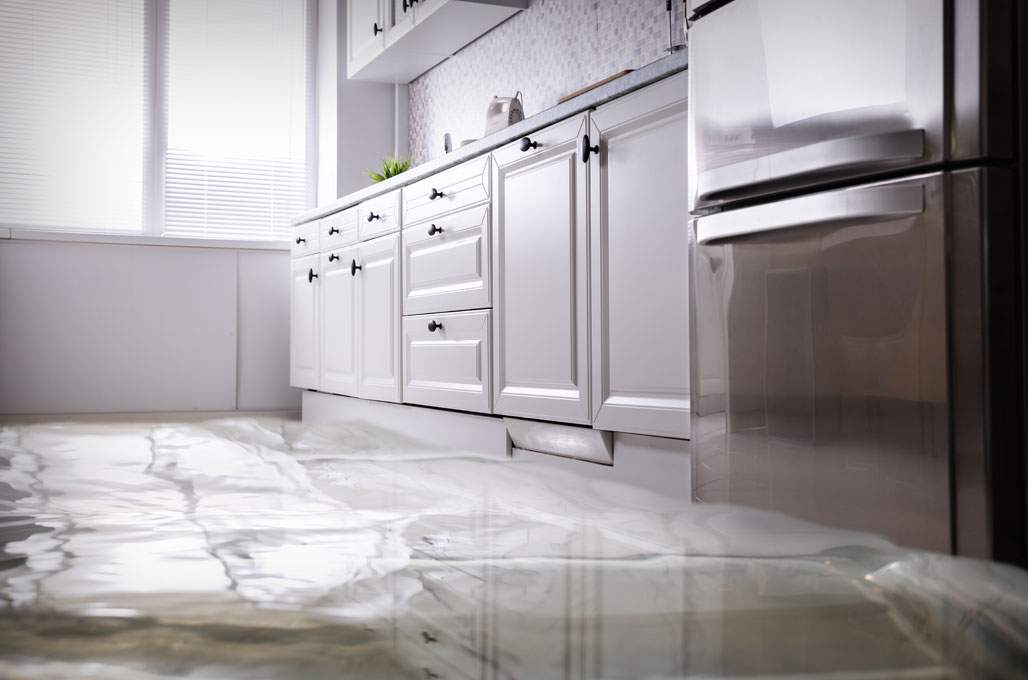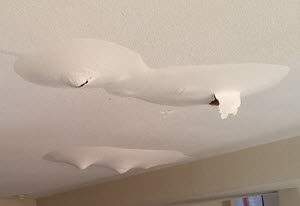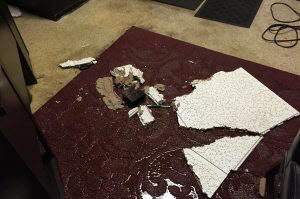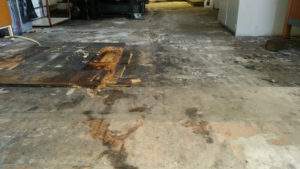Effects That Water Damage Can Have on Your Home

A flooded basement, a leaky roof, a burst pipe, and a backed up sewage system all have one major thing in common – they cause water damage. Whatever the cause of water damage to your home, it is something that needs to be taken seriously and acted upon quickly to mitigate the extent of the damage and ensure the safety of you and your family.
But what exactly are the dangers of water damage? How does it affect different parts of your home?
In this post, we take a look at the ways water damage can wreak havoc on your home. If you currently have water damage, watch our video to see what you should be doing to minimize damage.
Hazardous to Your Health
There’s no doubt about it – water damage can lead to some pretty nasty health hazards. If your home has been flooded with unclean water, you have particular cause for concern. There are three classes of flood water:
- Category 1: “Clean” water from sanitary sources, most notably the pipes in your home. This water has not yet been used for anything within your home, but is still fresh and clean.
- Category 2: “Grey” water from outside of your home, such as ground water that has seeped into your basement, and post-use water from home appliances.
- Category 3: “Black” water from unsanitary sources that could contain human or animal waste. This water includes flood water from rivers and lakes, and any water containing sewage. This water should be treated as toxic.
If you are dealing with Category 3 water, you need to take a step back and call in the professionals immediately. This water can be unsafe to even touch or breathe around, and anything it has touched needs to either be disposed of or professionally cleaned and sanitized. A professional water damage remediation company will be able to determine whether contaminated belongings can be salvaged.
Even if they do not contain raw sewage, flood waters from outside of your home can carry a vast array of bacteria, toxins, mold, and even fungi. If your home was flooded by anything but clean tap water, your family may be exposed to these contaminants, and sterilization efforts must be undertaken.
The most commonly recognized danger of water damage is mold growth. Mold spores begin to form in as little as 24 hours after the water damage occurs. Mold is known to cause health problems, from allergy-like symptoms in some to serious respiratory issues and even neurological damage in others. Mold isn’t something you want to mess with, and if you suspect that you have mold growing as a result of your water damage, or water was allowed to sit for more than 24 hours, the best thing you can do is bring in a mold remediation company to address the problem.
Clearly these contaminants aren’t things you want to sit around and multiply in your home, and it is imperative to deal with water damage right away. But water damage doesn’t just present health hazards in the form of biohazards – it can also compromise the structure and materials of your home.
Ceiling Water Damage

If you’re seeing signs of water pooling in your ceiling, this area could burst or collapse, which presents a safety concern for you and your family, not to mention your home and belongings. In addition, by the time you notice pooling, chances are that water has been gathering for a little while and may have caused mold growth.
Drywall Water Damage
Drywall is an area that can be easy to forget or ignore, particularly if the water damage to other areas is more apparent. One huge issue when you’re dealing with drywall water damage is mold. Mold can hide inside of your walls, and this cool, damp space is ideal for this mold to grow unabated. Drywall with water or mold damage needs to be cut out and replaced.
Even small amounts of water damage to your drywall can also cause damage to the structural integrity of your home over time. If your drywall is not completely firm to the touch, but feels spongy, you are dealing with effects of water damage that could present structural dangers if not addressed.
Wood
Wood appears tough on its surface, but is actually very porous, which leaves it particularly susceptible to water damage. Many homes have wooden floors, baseboards, and furnishings, as well as load-bearing elements such as posts and beams, so it is important to address water damage to any wood in your home, and recognize that the damage might be widespread.
The first few hours are critical when addressing the effects of water damage on your wood flooring. Wood will absorb moisture immediately and begin to swell as time passes. This doesn’t mean that all is lost if water has come in contact with your wood floors, but it does mean that the clock is ticking, and that the sooner the drying process begins, the easier and less expensive it will be.
If you do not take care of water damage to wood quickly enough, mold can grow, and the wood can warp. Warping of wood in your home is not just a cosmetic problem, as enough warping can cause structural instability, particularly in load-bearing beams.
Carpet

Electric and Plumbing
Of course, you know that electricity and water don’t exactly mix well. Flooding and other water damage can cause huge problems if any wires, outlets, or your fuse box are exposed to the offending water. This combination of electricity and water can be dangerous, and even fatal.
You should always turn off your home’s electricity after flooding or water damage has occurred, and consult with an electrician or your electric provider if you feel unsafe to do so yourself. An electrician should inspect any electrical systems exposed to water to determine whether they can still be safely used, or need to be repaired or replaced.
You may be shocked to discover that your plumbing infrastructure can also be damaged by flood waters. This is because flood water contains things that tap water does not, and your pipes have been designed to handle tap water. Pipes exposed to flood waters may corrode over time if the damage is not taken care of, causing flooding to be a recurring problem for you.
Foundation

Prolonged or extensive water damage can leave your home structurally unsound and cause damage to your home’s foundation. After any extensive water damage, it is best to have your home inspected by qualified water remediation specialists.
Your Home’s Value
Even if all of the things that can go wrong in your home as a result of water damage don’t concern you, a home inspector will certainly find them alarming. A coat of paint over damage to ceilings and drywall won’t hide the telltale signs home inspectors are trained to recognize. Your home value will be greatly diminished if water damage is allowed to fester, and it will be harder to sell your home, even at a reduced price, due to very valid health and safety concerns that arise wherever untreated water damage exists.
The long and short of the matter is, the effects of water damage on your home can be significant and need to be addressed thoroughly and quickly. When determining whether you need to call in a professional water remediation company, consider the category of water, amount of water, extent of damage, and how long the water has been sitting and potentially leading to mold growth.
Your safest bet when it comes to handling mold and other contaminants is always to bring in a professional remediation company like Abbotts, who can properly assess and address the situation, maximize the number of salvaged items, and deal with your insurance company throughout the process. If you are dealing with water damage to your home, we are here to help. Contact us today for a free consultation.

